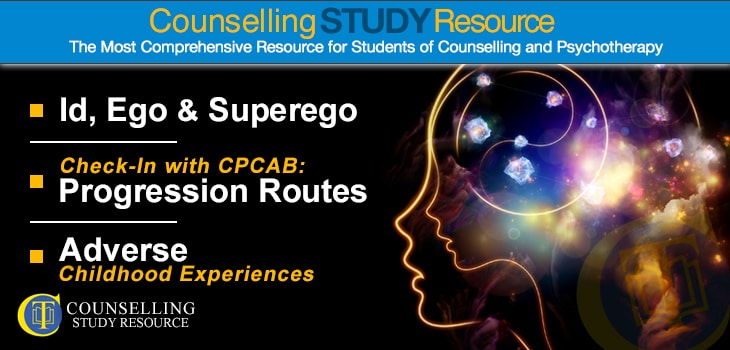Check-In with CPCAB: Progression Routes in Training (starts at 10.20 mins)
There are many different counselling courses available in the UK, and it can be confusing to know which to choose.
Rory talks to Heather Price (Senior Counselling Professional) at CPCAB (Counselling & Psychotherapy Central Awarding Body) about its suite of counselling courses, which starts at level 2 (the equivalent to GCSE level) and extends to level 6 (honours degree level).
These levels refer to the National Qualifications Framework for England, Wales and Northern Ireland; the system is different in Scotland and in other countries.
One possible advantage of choosing an awarding body that offers a full series of courses is that it can offer consistency and so help the transition between stages.
Heather describes the courses offered by CPCAB, ranging from level 2 (including both awards, which are small courses, and the bigger certificate) to level 6 (in supervision).
She also talks about the CPCAB’s link to the Open University (OU), which enables those who have successfully completed the CPCAB level 4 diploma to use this towards an OU foundation degree.
All the CPCAB courses are studied part-time, as it’s important to have the time to fully process the learning before moving on.
Different colleges offer them in different ways: for example, you can find weekday or weekend courses, and daytime or evening ones. This enables you to choose an attendance pattern that best fits with your personal and professional responsibilities.
When you are choosing your counselling course, do plan ahead to how you might wish to progress – this will ensure that none of your hard work needs to be repeated, which is naturally also more cost-effective.



